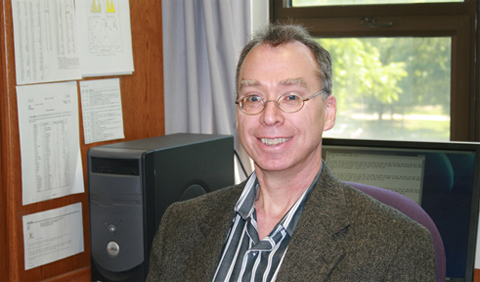Dr. Kenneth Hicks, Professor of Physics & Astronomy at Ohio University, authored a column in the Columbus Dispatch headlined “Astronomy: Major experiment fails to answer one of science’s remaining mysteries.”
…In late May, scientists conducting an experiment called XENON1T, which can detect collisions between dark matter and regular matter, announced their results after a year of data-taking. This result was much anticipated in the scientific community because it is the most sensitive experiment to date for dark-matter collisions.
The reason that XENON1T was so sensitive is that it used more than a ton of ultra-pure liquefied xenon gas, making it one of the biggest detectors yet built. A collision between dark matter and the nucleus of xenon is expected to give off a tiny flash of light. This detector was equipped with light-sensing electronics capable of seeing even the smallest light flash.
The result was a big fat zero. No dark-matter collisions were detected within the expected range of mass for dark-matter particles. It’s possible that the dark-matter particle could be less massive than expected, but in that case, the astronomy observations would not agree with mathematical models of dark matter….

















Comments